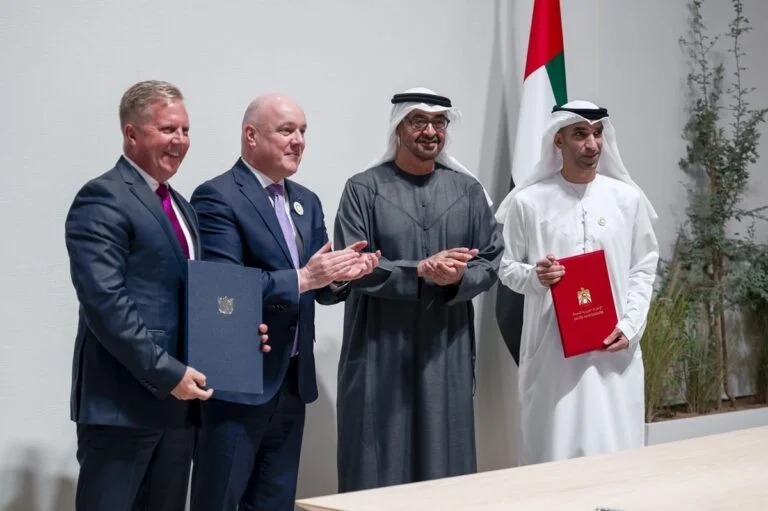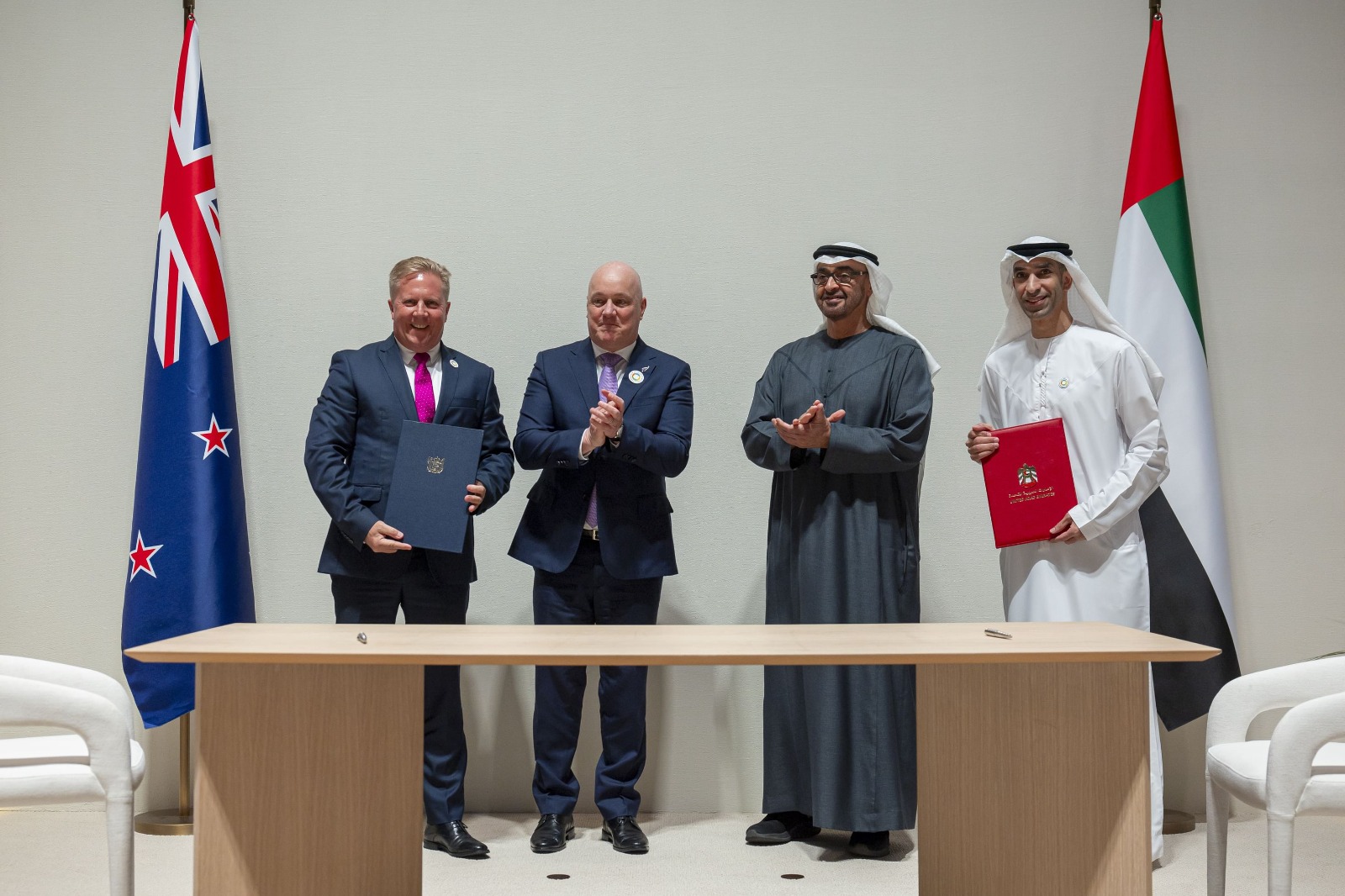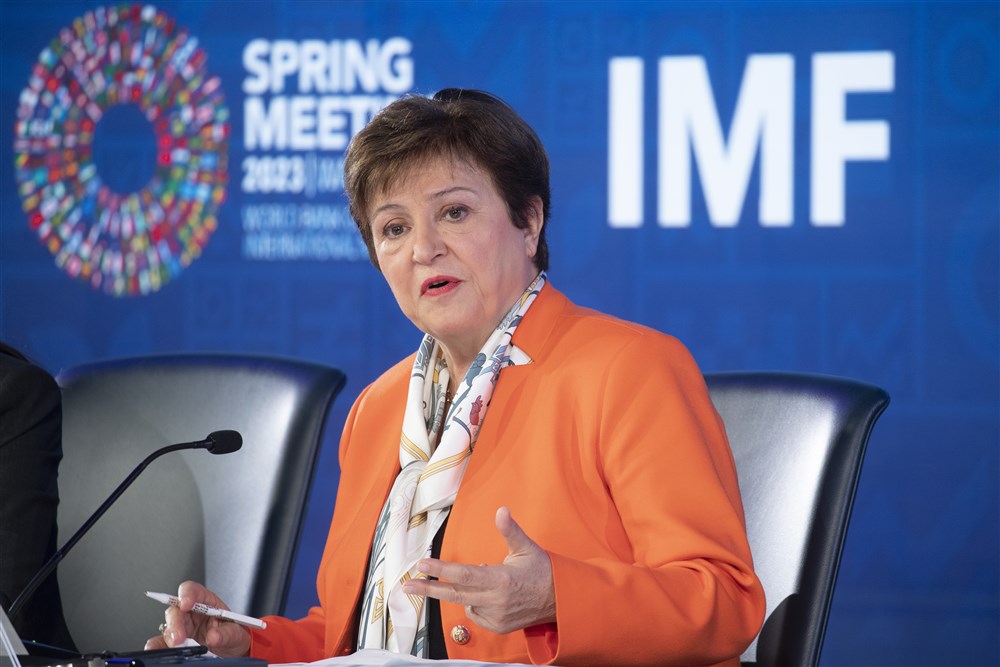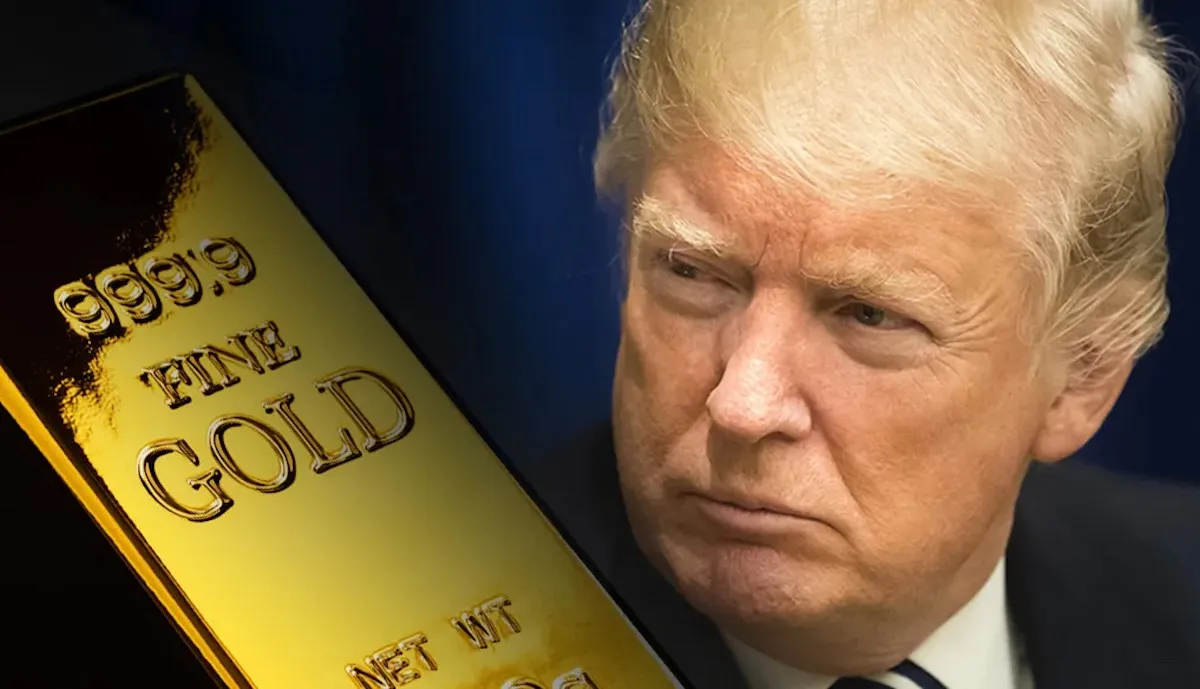
The UAE signed a Comprehensive Economic Partnership Agreement (CEPA) with New Zealand on Tuesday, aimed at reducing trade barriers, streamlining customs procedures, and fostering private sector collaboration and investment, according to state news agency WAM.
Agreement details
As per the agreement, New Zealand will provide 100% duty-free access to imports from the UAE, while the UAE will grant duty-free access to 98.5% of New Zealand products, which will rise to 99% within three years.
The agreement was signed by Thani bin Ahmed Al Zeyoudi, UAE Minister of State for Foreign Trade, and Todd McClay, New Zealand Minister for Trade, in Abu Dhabi. The signing ceremony was attended by UAE President Sheikh Mohamed bin Zayed Al Nahyan and Prime Minister of New Zealand Christopher Luxon.
The President said that the agreement was an important addition to the UAE’s CEPA program, solidifying ties with the dynamic Asia-Pacific region via one of its most developed and open markets. He added that the UAE-New Zealand CEPA unites the two countries in a shared ambition to develop resilient, future-ready economies built on knowledge, innovation, and talent.
WAM reported that the CEPA is New Zealand’s first trade agreement with a Middle East country and is one of the UAE’s most expansive CEPAs to date. It covers areas such as indigenous trade, sustainable development, women’s economic empowerment, and transparency.
Bilateral trade
Bilateral non-oil trade between the two countries reached $642 million in the first nine months of 2024, an increase of 8% from the same period in 2023.
The agreement is expected to boost bilateral trade to $5 billion by 2032, tripling the five-year average bilateral trade of $1.5 billion between the UAE and New Zealand between 2019 and 2023.
CEPA program
The UAE’s CEPA program, which was launched in September 2021, is one of the main pillars of the Gulf country’s growth strategy, which targets $1 trillion in total trade value by 2031 and aims to double the size of the wider economy to surpass $800 billion by the same year. To date, the program concluded agreements with countries in the Middle East, Africa, Southeast Asia, South America, and Eastern Europe.
On December 31, Al Zeyoudi announced that the Gulf country will continue to expand its CEPAs in 2025. He said that the program is designed to expand the country’s commercial and investment partnerships globally, positioning it as a key gateway for non-oil goods and services as well as a global hub for business and investment.
He highlighted that the diversity of these agreements, coupled with the UAE’s ability to form valuable partnerships across five continents, significantly increases opportunities for various sectors and opens new markets.
Recent trade deals
In October, the UAE and Vietnam signed agreements to bolster trade relations, government development, education, economy, investment, scientific research, and logistics during Vietnamese Prime Minister Pham Minh Chinh’s visit to the Gulf country. These deals included a memorandum of understanding (MoU) on investment cooperation in innovation and financial centers between the UAE’s Ministry of Investment and Vietnam’s Ministry of Investment and Planning.
Earlier in October, the UAE and Jordan signed a CEPA to enhance bilateral trade and investment. The agreement, the first CEPA signed between the UAE and another Arab state, aims to accelerate growth in key industries, create job opportunities, and strengthen supply chains.






